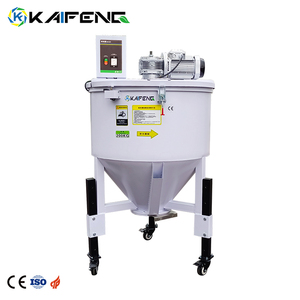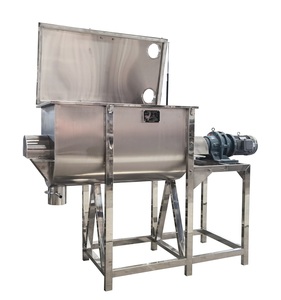(4988 products available)
































































































































































































































A compounding mixer is a crucial piece of equipment used in various industries, including plastics, pharmaceuticals, and food processing, for mixing and compounding different materials. This versatile machine is designed to blend materials to create a homogenous mixture, making it an essential tool in manufacturing processes.
There are several types of compounding mixers available in the market to cater to different industry needs. These include batch mixers, continuous mixers, and high-speed mixers. Batch mixers are suitable for small-scale production, while continuous mixers are ideal for large-scale operations. High-speed mixers are specifically designed for demanding applications that require quick and efficient mixing.
When choosing a compounding mixer, it is essential to consider various technical specifications to ensure it meets your production requirements. Some key specifications to look out for include the mixing capacity, motor power, mixing speed, material compatibility, and control system. For example, a high-speed mixer for PVC compounding may have a motor power of above 35 hp and a mixing speed of 3000 RPM.
The use of a compounding mixer offers numerous benefits to manufacturers. One of the primary advantages is the ability to achieve uniform mixing, leading to consistent product quality. Additionally, compounding mixers improve production efficiency by reducing mixing times and minimizing material wastage. These machines also enhance process control, allowing for precise adjustments to meet specific formulation requirements.
Compounding mixers find applications in a wide range of industries, such as plastic compounding, rubber manufacturing, pharmaceutical production, and food processing. In the plastics industry, these mixers are used to blend additives, fillers, and pigments with polymer resins to create custom compounds with unique properties. In the pharmaceutical sector, compounding mixers play a crucial role in mixing active ingredients with excipients to produce medications.
When selecting a compounding mixer for your business, it is essential to consider several factors to ensure you make the right choice. Some key considerations include the type of materials to be mixed, production volume, required mixing precision, maintenance requirements, and available space for installation. It is advisable to consult with industry experts or suppliers to determine the most suitable mixer for your specific needs.
To ensure optimal performance and longevity of your compounding mixer, regular maintenance is essential. This may include cleaning the mixing chamber, inspecting and replacing worn-out parts, lubricating moving components, and calibrating the control system. Proper maintenance not only prolongs the lifespan of the mixer but also helps prevent unexpected breakdowns that can disrupt production schedules.
A compound mixer drill is a specialized tool used in conjunction with a compounding mixer to enhance mixing efficiency. This attachment allows for thorough mixing of materials by providing additional agitation and shear force during the compounding process. By using a compound mixer drill, manufacturers can achieve better dispersion of additives and improve the overall quality of the final product.
The field of compounding mixers continues to witness advancements in technology and design to meet the evolving needs of modern industries. Manufacturers are constantly innovating to improve mixing efficiency, reduce energy consumption, and enhance product quality. By staying updated on the latest developments in compounding mixer technology, businesses can stay competitive and optimize their manufacturing processes.
In conclusion, compounding mixers play a vital role in various manufacturing sectors by enabling efficient mixing and compounding of materials. Understanding the different types, technical specifications, benefits, applications, and maintenance requirements of these machines is essential for businesses looking to enhance their production processes. By investing in a high-quality compounding mixer that meets their specific needs, manufacturers can improve product quality, increase operational efficiency, and stay ahead in the competitive market.